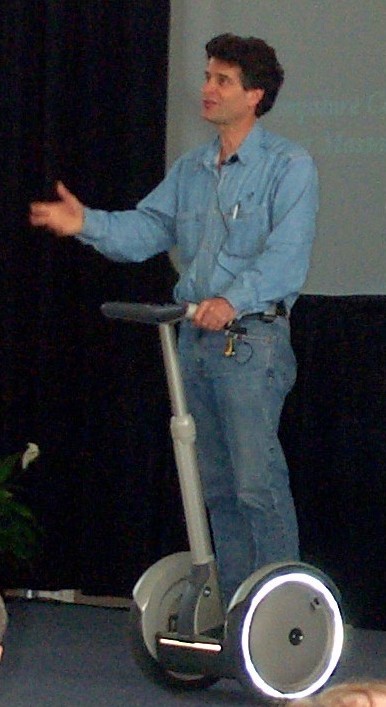
I just read a great article by Clive Thompson called “Head for Detail” about Gordon Bell‘s latest experieement. Please just read the first 2 paragraphs. It’s about Gordon and how he is recording everything he’s doing (video, audio, emails, web, everything). He’s been doing it for the past 14 years and is able to bring up almost eveyrthing. Clive writes about Bell, saying:
He[Bell] had a tiny bug-eyed camera around his neck, and a small audio recorder at his elbow. As we chatted about various topics–Australian jazz musicians, his futuristic cell phone, the Seattle area’s gorgeous weather–Bell’s gear quietly logged my every gesture and all my blathering small talk, snapping a picture every 60 seconds. Back at his office, his computer had carefully archived every document related to me: all the email I’d sent him, copies of my articles he’d read, pages he’d surfed on my blog.
This really resonated with me as i am already trying to record my life. I have photos up on Flickr, i have my ideas going to my blog, i have my mundane thoughts going to Twitter, my videos going to YouTube, and my friend interactions recorded on Facebook. I’m already on the web but just in the totality that Bell is. Storage is getting cheaper and cheaper it’s gone from $233,000 for a gigabyte in 1980 to less than $1 today. Soon there will be enough storage in your cell phone for your entire life to be stored. I do this because i want to remember. I want my memories to be accesible all the time and reading the article made me realize how inefficent i’ve been in capturing them.
I really like articles like this becaues they make you think about where the world is going and wonder how human interactions and functions will change. It touches on how humans will change when we no longer have to remember stuff. I already don’t remember phone numbers beceuase of your cell phone. What if you don’t have to remember people’s names and interactions and you free you mind to be more creative. Just imagine – that’s what i’m doing now….
Related articles:
- In Defense of Friendships Formed With People We Meet Online
- 2009: Products I Can’t Live Without
- If You Liked This, Sure to Love That (Clive Thompson/New York Times)
![Reblog this post [with Zemanta]](http://img.zemanta.com/reblog_e.png?x-id=45c87f73-e5fd-4550-8e93-adfac8346957)

![Reblog this post [with Zemanta]](http://img.zemanta.com/reblog_e.png?x-id=60b942c8-da10-4ea4-b17e-677fd6cd7370)

![Reblog this post [with Zemanta]](http://img.zemanta.com/reblog_e.png?x-id=24db3fe0-70df-49ee-8abe-76da114f7c2e)


![Reblog this post [with Zemanta]](http://img.zemanta.com/reblog_e.png?x-id=2031cb9d-f19d-4f8c-a4a0-08bcfbebcca4)
![Reblog this post [with Zemanta]](http://img.zemanta.com/reblog_e.png?x-id=6f748943-e5b5-4157-901c-cb609e504814)



